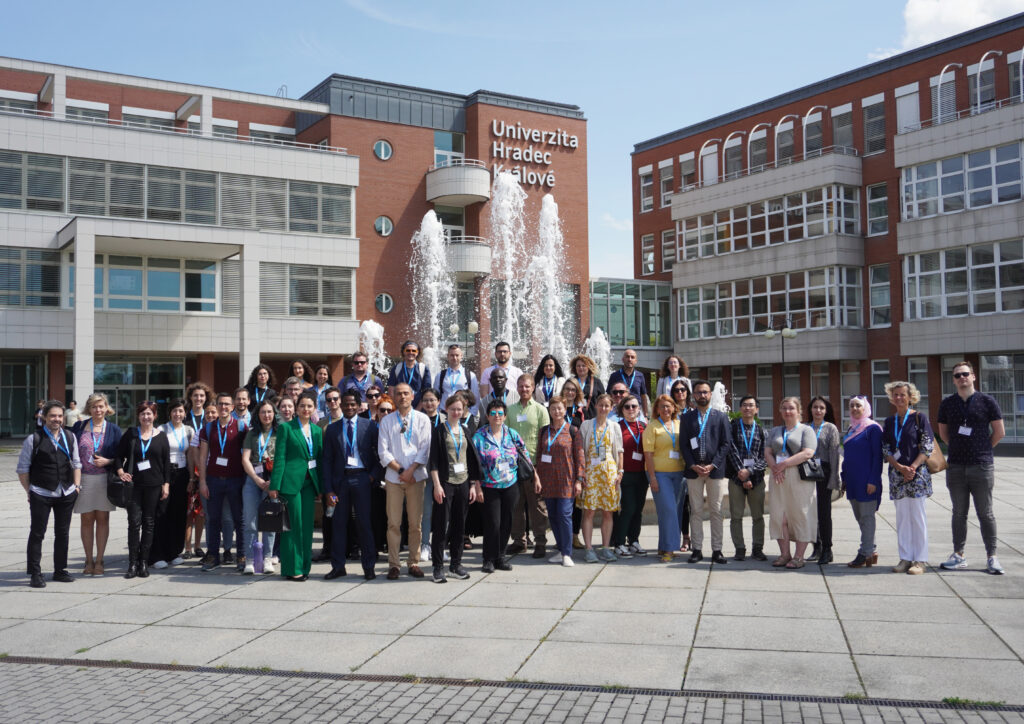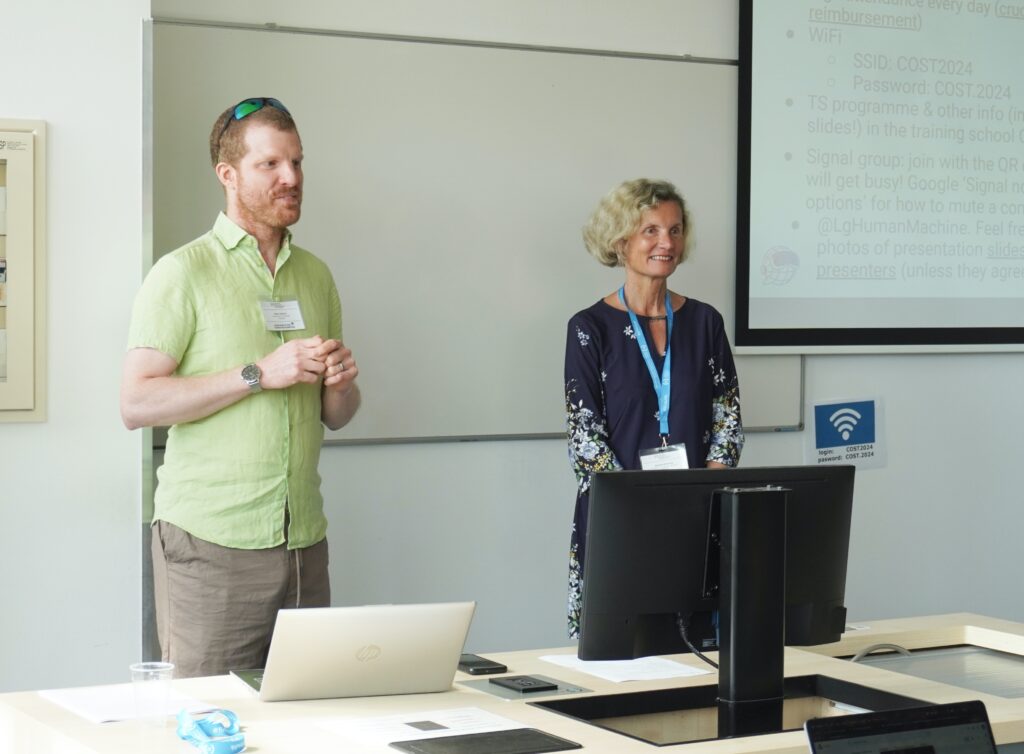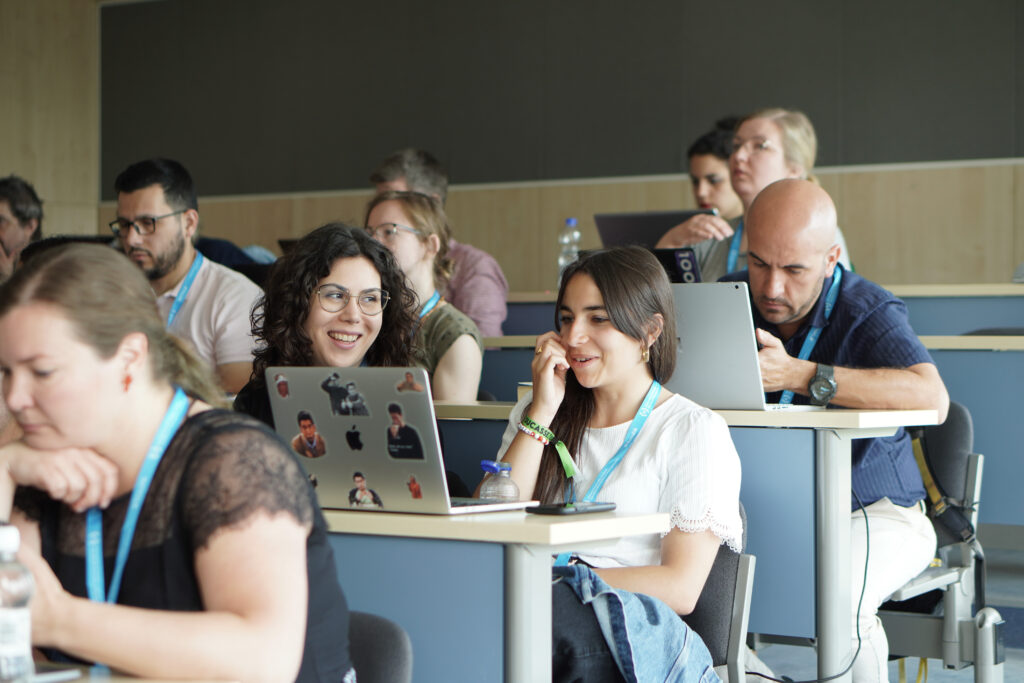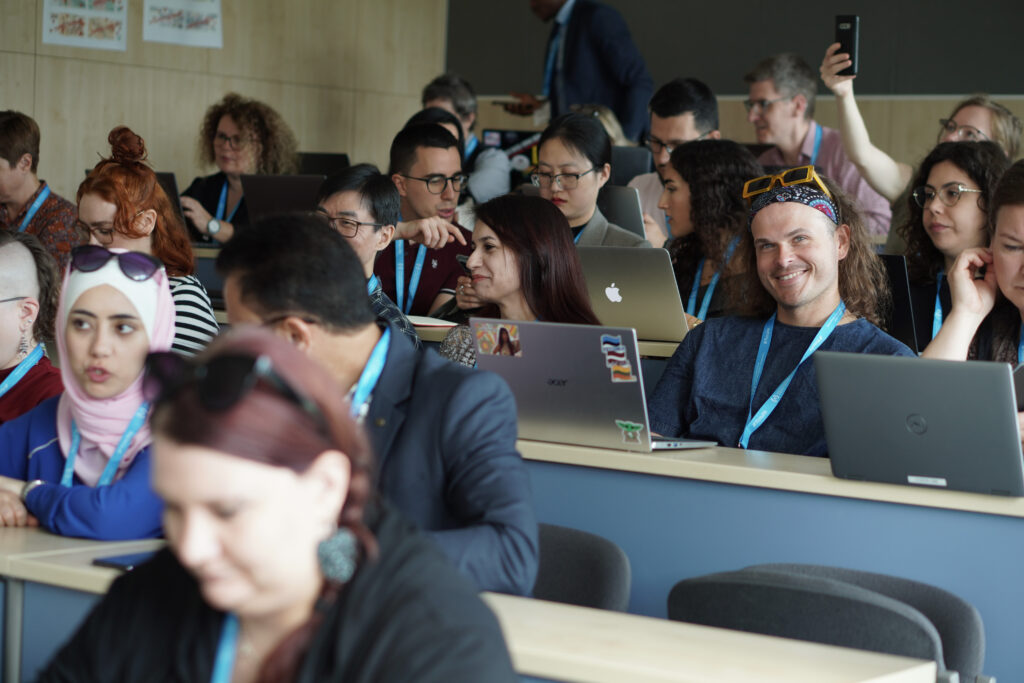The fourth (and very last!) LITHME training school took place between the 27th and 31st of May in the beautiful Czech town of Hradec Králové. The week started with a tour of the town – led by our host for the week Blanca Klimova – followed by lunch in a local restaurant. This was a great first opportunity for the 44 participants from all over the world to get to know each other, and the tutors, before the start of the formal programme on Monday afternoon with a presentation by the working group 1 – computational linguistics -, as well as the first of the talks by companies working on different aspects of technology.

Monday afternoon also saw the first of the pecha kuchas. Loved and loathed in equal measure by the participants – these quick 20-slides-in-20-seconds-per-slide presentations have become a feature of the LITHME training schools and provides an opportunity for each of the participants to talk about their (research) interest. This first day finished with more informal network opportunities over the welcome reception at the University.
The pattern of inputs by working group chairs, industry and pecha-kutchas, interspersed by coffee and lunch breaks continued over the next few days. The inputs and workshops raised important questions on the role of AI and technologies in the human-machine era including what the developments in technology might mean for language ideologies (WG6), Language variation (WG8), language rights (WG3) and the law (WG2), as well as exploring what these developments mean for learning (WG5) and working with languages (WG7).

The training school finished on Friday with discussions around the nature of language endangerment (WG4) and how developments in the human-machine era might impact on the vitality of languages. Lively discussions also took place in response to the LITHME animations on future technologies.
The training school finished with the much-anticipated results of the pecha-kucha votes – a very well-deserved congratulations to Neil Fox and Michał Górnik for coming first and second respectively.
A big thank you needs to go to Blanka Klimova– for ensuring that the event ran so smoothly and organising lunches at the local restaurant and the workshop dinner on Wednesday night! Of course, we could not have done without Dominik Palla who ran the petcha-kutcha sessions with such efficiency – and who kept the energy levels up between sessions through his selection of music during the breaks!

As the sun (and the occasional shower) set over this last LITHME training school it became clear that the opportunities to learn from, and network with, a wide range of individuals from different disciplines, different countries, and at different career stages, have created, and are creating, valuable opportunities for new research collaborations, both now and in the future.
Report by Ingeborg Birnie, chair of WG4

